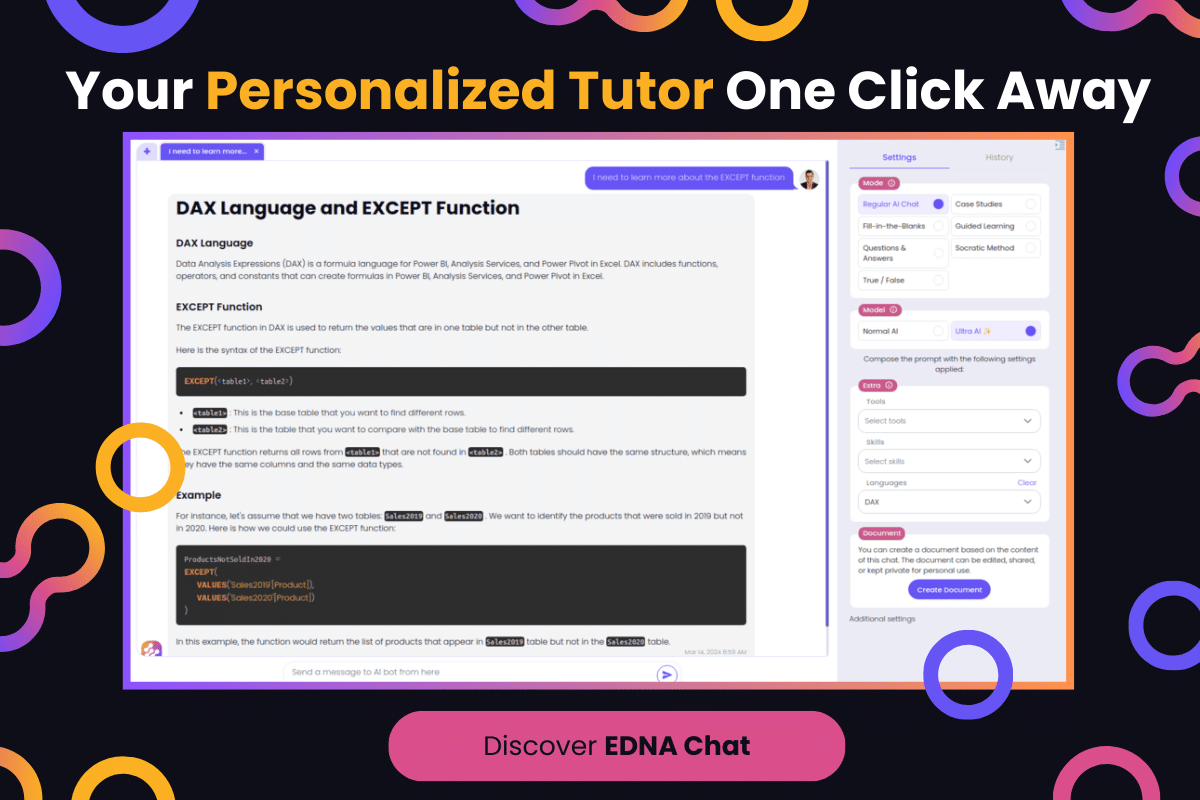It is evident that the business intelligence (BI) landscape is rapidly evolving, and it is essential for companies to make the right choices when it comes to BI tools. One tool that stands out in this ever-changing landscape is Looker. It has a unique approach to BI that makes it a strong contender for companies looking to make data-driven decisions.
Looker stands out in the BI market for several reasons. First, it offers a unique modeling layer that allows for faster and more accurate data analysis. Second, its flexibility and scalability make it a great fit for companies of all sizes. Third, its strong focus on data governance and security ensures that your data is always protected. And lastly, it is cost-effective and user-friendly, making it an attractive option for companies looking to invest in a powerful BI tool.
This article will dive into the reasons Looker stands out in the BI landscape and why it is worth considering for your business. The information provided will help you make an informed decision about whether Looker is the right BI tool for you.
Let’s get into it!
Looker: An Overview

Before we dive into the specifics of Looker and what sets it apart from the competition, let’s start with a brief overview of the platform. Understanding its core features and functionality will provide you with a solid foundation for further exploration.
Looker is a business intelligence (BI) and data analytics platform that offers a unique approach to data exploration and visualization.
Some of its key features include:
- Data modeling: Looker allows you to create a centralized data model that can be easily reused across your organization.
- Data exploration: With Looker, you can explore and analyze data from multiple sources using an intuitive interface.
- Visualization: Looker offers a wide range of visualization options, including charts, graphs, and dashboards, to help you understand and communicate your data effectively.
- Data governance: Looker provides robust data governance features, including access controls, data lineage, and data monitoring, to ensure the security and integrity of your data.
- Embedding and integration: Looker can be embedded into other applications and platforms, making it easy to integrate with your existing systems.
Now that we’ve gone over the basics, let’s explore the reasons why Looker is gaining traction in the BI market and why you should consider it for your business.
5 Reasons Why Looker Stands Out in BI

Looker has managed to carve out a unique position for itself in the business intelligence landscape. This is largely due to a combination of innovative features and a strong focus on data governance and scalability.
Here are the top 5 reasons why Looker is worth considering for your business:
1. Unique Data Modeling Layer
Looker’s unique data modeling layer is one of the main reasons why it stands out in the BI market. This layer, called the LookML, acts as an abstraction between your raw data and your end-user reporting, allowing you to create a single source of truth for your entire organization.
By using LookML, you can create reusable data models that can be easily updated and maintained, even as your data sources and business requirements change.
This significantly reduces the time and effort required to create and maintain data models, allowing your team to focus on analyzing data and deriving insights.
2. Scalability and Flexibility
Another area where Looker shines is in its scalability and flexibility. Looker can handle large and complex datasets, making it suitable for both small startups and large enterprises.
Additionally, Looker can be deployed on-premises or in the cloud, giving you the flexibility to choose the deployment option that best fits your needs.
Furthermore, Looker integrates with a wide range of data sources and platforms, allowing you to consolidate your data and work with it in a single tool. This can help you avoid the challenges of managing data across multiple tools and environments.
3. Strong Focus on Data Governance
Looker is designed with a strong focus on data governance, making it an excellent choice for companies with strict data security and compliance requirements.
Some of Looker’s key data governance features include:
- Data access controls: Looker allows you to define granular data access controls, ensuring that only authorized users can access sensitive data.
- Data lineage: Looker provides data lineage tracking, allowing you to see where your data comes from and how it has been transformed over time.
- Data monitoring: Looker offers real-time data monitoring, giving you visibility into how your data is being used and ensuring that it remains secure.
- Compliance and certifications: Looker is designed to meet a wide range of data security and privacy regulations, and the platform holds several industry certifications.
By leveraging Looker’s data governance features, you can ensure that your data is secure and compliant while still making it easily accessible to those who need it.
4. User-Friendly and Cost-Effective
Looker offers an intuitive and user-friendly interface that makes it easy for non-technical users to explore and analyze data. Additionally, Looker’s drag-and-drop interface and interactive visualizations allow users to quickly derive insights from their data.
Furthermore, Looker’s pricing is based on the number of users and the level of support you require, making it a cost-effective option for companies of all sizes. This flexible pricing model allows you to scale your usage as your business grows, without incurring significant upfront costs.
5. Continuous Product Innovation
Finally, Looker’s commitment to continuous product innovation sets it apart in the BI market. Looker regularly releases new features and updates to improve performance, usability, and security.
Furthermore, Looker’s active user community and extensive documentation make it easy to stay up-to-date with the latest developments and best practices.
By using Looker, you can benefit from a modern and robust BI platform that is constantly evolving to meet the needs of its users and the demands of the market.
The Looker Ecosystem

When evaluating Looker, it’s essential to understand the broader ecosystem in which it operates. Looker is more than just a standalone BI tool; it is an entire platform that offers a wide range of features and capabilities.
Some of the key components of the Looker ecosystem include:
1. LookML
LookML is Looker’s unique modeling language that allows you to define and manage your data models. LookML acts as an abstraction layer between your raw data and your end-user reporting, allowing you to create a single source of truth for your entire organization.
With LookML, you can create reusable data models that can be easily updated and maintained, even as your data sources and business requirements change. This significantly reduces the time and effort required to create and maintain data models, allowing your team to focus on analyzing data and deriving insights.
2. Looker Blocks
Looker Blocks are pre-built data models, reports, and dashboards that can be easily customized and integrated into your Looker instance. Looker Blocks can help you get up and running quickly with Looker by providing you with a starting point for your data analysis.
These blocks cover a wide range of use cases and industries, including sales, marketing, finance, and e-commerce. Additionally, Looker Blocks are created and maintained by Looker and the Looker community, ensuring that they are high quality and up-to-date.
3. Looker API
The Looker API allows you to integrate Looker with other tools and systems in your organization. With the Looker API, you can perform a wide range of actions, including:
- Running and scheduling reports
- Creating and managing users and groups
- Embedding Looker visualizations and dashboards into other applications
The Looker API is RESTful and uses OAuth for authentication, making it easy to work with and secure. By using the Looker API, you can extend Looker’s capabilities and integrate it into your existing data infrastructure.
4. Looker Marketplace
The Looker Marketplace is a central hub for finding and sharing Looker Blocks, data models, and other resources. The Looker Marketplace allows you to easily browse and discover new resources, as well as share your own resources with the Looker community.
Additionally, the Looker Marketplace includes a wide range of developer tools and resources, making it easy to get started with Looker development and customization.
Final Thoughts

In conclusion, Looker is a strong contender in the BI landscape, thanks to its unique approach to data modeling, strong focus on data governance, and continuous product innovation. Looker is well-suited for companies looking for a scalable and flexible BI solution that can grow with their business.
The unique features of Looker, such as LookML, Looker Blocks, and the Looker API, make it a powerful tool for creating a single source of truth for your data and deriving actionable insights. Additionally, Looker’s commitment to data security and compliance ensures that your data is always protected.
As you evaluate Looker for your business, consider its unique features and how they align with your organization’s goals and data requirements. With its robust capabilities and commitment to innovation, Looker can help you take your data analysis to the next level and make better-informed decisions.
Want to learn more about how to use Looker? Check out the video below:
Frequently Asked Questions

Is Looker a good BI tool for large enterprises?
Yes, Looker is a powerful business intelligence tool suitable for large enterprises. It offers a unique data modeling layer that allows for faster and more accurate data analysis. Its scalability and flexibility make it a great fit for organizations of all sizes.
How does Looker compare to other BI tools like Power BI and Tableau?
Looker offers a unique modeling layer that allows for faster and more accurate data analysis. Its strong focus on data governance and security ensures that your data is always protected. Its scalability and flexibility make it a great fit for organizations of all sizes.
What are the main benefits of using Looker for data analysis?
Some of the main benefits of using Looker for data analysis include:
- Unique data modeling layer for faster and more accurate data analysis
- Scalability and flexibility for organizations of all sizes
- Strong focus on data governance and security
- Cost-effective and user-friendly
How can I get started with Looker?
To get started with Looker, you can visit the Looker website and sign up for a free trial. You can also contact their sales team for a demo and to discuss your specific needs.
What is the cost of Looker?
Looker’s pricing is based on the number of users and the level of support you require. You can contact Looker’s sales team for a customized quote based on your organization’s needs.
Can I integrate Looker with other data tools and platforms?
Yes, Looker can be integrated with a wide range of data tools and platforms, including data warehouses, ETL tools, and other business applications. Its Looker API allows for seamless integration with other systems in your organization.








